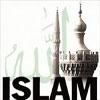
- Hujjat al-Islam Nazim Husain Akbar, the director of the Pakistan think-tank of al-Mustafa International University and the founder and director of the Abu Talib Research Institute in Iran and Pakistan, has referred to the political, social, cultural thought among Shi’a Muslims in Pakistan in an exclusive interview with Rasa News Agency.
The Pakistani cleric said that unless Pakistanis raise and educate their children in a correct manner to keep them away from extremism, the government cannot do anything. “During the 1980s, the Pakistani government supported extremist groups to fight against the Soviet Union in Afghanistan, but now this need has been removed but these takfiri groups are engaging in violent actions against the Pakistani people,” he said.
He said that now, the Pakistani government is looking to tackle the takfiri phenomenon, but in recent years the situation has improved. In the past, explosions occurred even in the centres of the country’s major cities, but now they mostly in border areas.
“The government cannot easily deal with these groups as Pakistan has a long and open border with Afghanistan which can be seen from the large number of arms entering into Pakistan,” he said.
Hujjat al-Islam Akbar explained that the most important Shi’a intellectual and political groups in Pakistan are those who espouse “unity between Muslims” and “Islamic unity” which is very active but added that Pakistani Shi’as suffer from several internal threats, saying that they have no influence in their country.
He added that the Shi’a clergy is also not coherent. The Shi’as also suffer from not being united with each other. “For example, no two Shi’a political parties can unite with each other," the director of the Pakistan think-tank of al-Mustafa International University said.
The Pakistani seminarian continued, saying that there is also a lack of insight among many scholars, especially political insight into the issues facing Shi’as in Pakistan and the major problems which can determine the duty of the Shi’as, the clergy and seminaries are not widely discussed.
source : abna24













